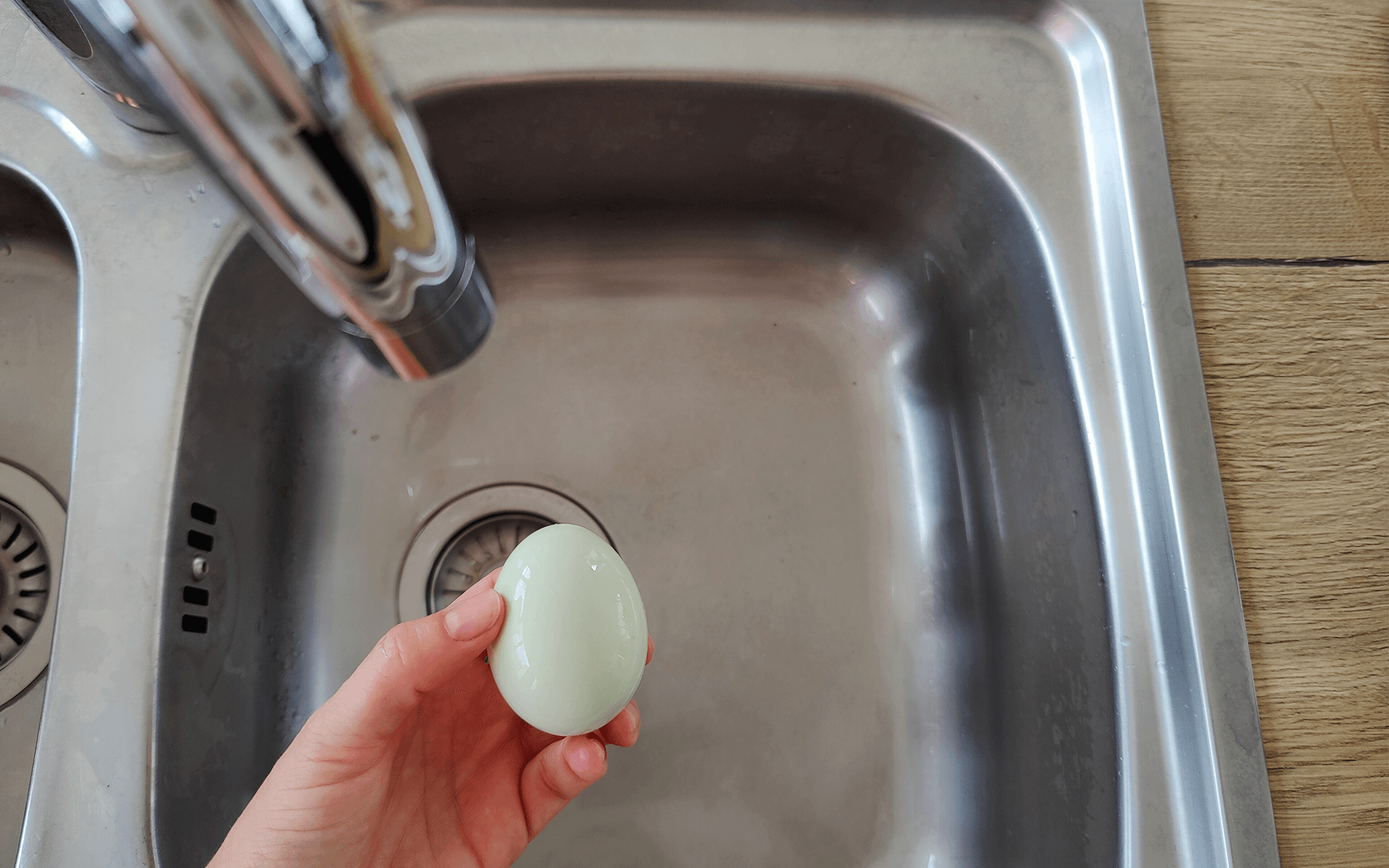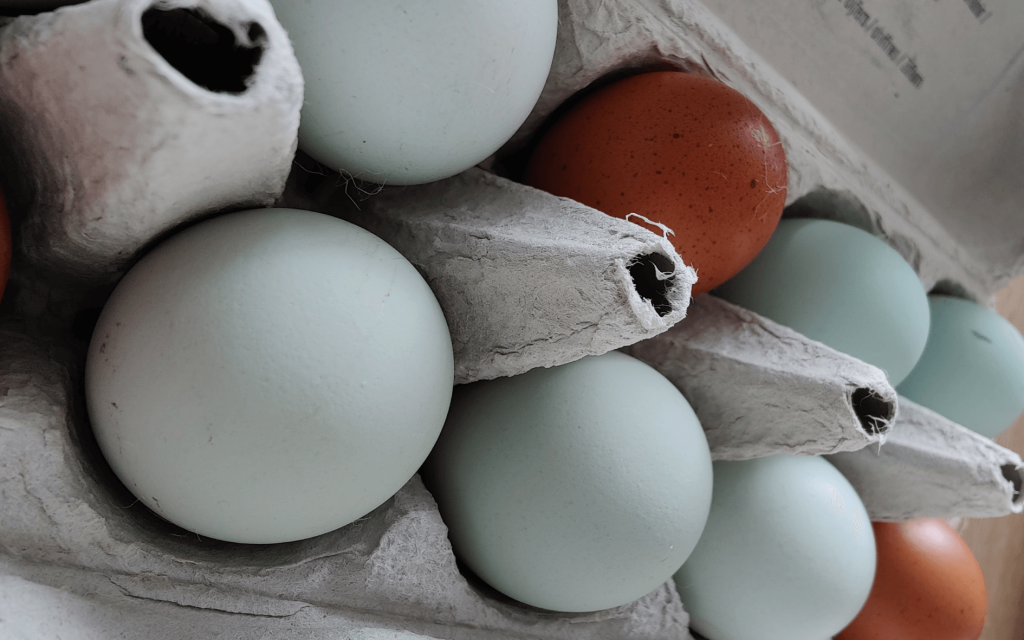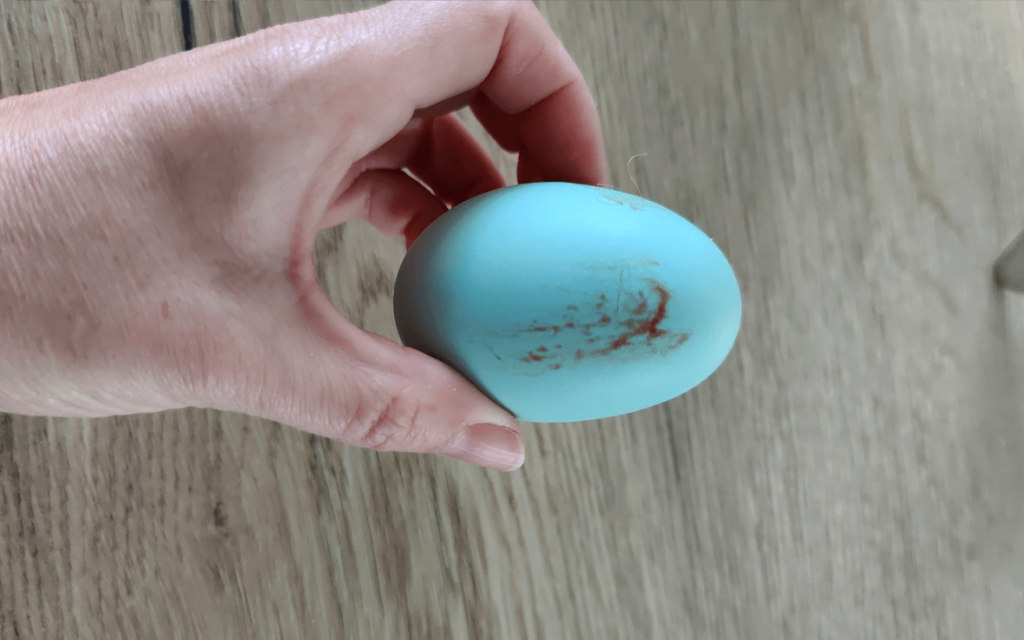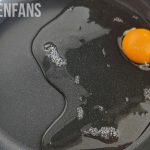How To Wash Fresh Eggs?

There is a lot of debate going on about whether to wash fresh farm eggs or not. Fresh eggs can get dirty with feathers, dirt, feces, and blood,… so we understand the need to clean and disinfect your hens’ fresh eggs before eating or storing them. We’ll explain all pros and cons of washing fresh eggs and the correct way to get them clean.
Why wash fresh eggs?
Let’s start with the most crucial topic in this article. There is NO need to wash fresh eggs before storing them, even if they are dirty. It won’t reduce the risk of bacteria contamination or Salmonella infection; on the contrary. It is beneficial, however, to wash fresh eggs before eating them.
Do I need to wash fresh eggs before storing them?
An eggshell seems solid, as seen by the naked eye, but microscopic pores allow gasses and bacteria to transfer between the inner and outer eggshells. So, it might seem quite logical to wash off any freshly laid egg to prevent these bacteria transfers from happening. However, every freshly laid egg has a natural ‘coating’ around it, called the ‘bloom’. This bloom creates a natural barrier and prevents any kind of bacteria, gasses, or moisture from entering the eggshell. You’ll wash off the bloom and make the eggshell porous by washing the egg.

Unwashed eggs don’t need to be refrigerated and can be stored on the kitchen counter. Washed eggs should always be stored in the refrigerator so you don’t give bacteria the chance to enter the egg.
Do I need to wash fresh eggs before eating?
Ideally yes. However, it won’t cause any severe health issues if you forget to wash your eggs once in a while before eating. The reason why it’s best to wash fresh eggs before eating is it’ll reduce the risk of any contamination of your food. And since you don’t have to store the egg any longer, the protective bloom has become unnecessary.
The main bacteria you need to avoid when dealing with eggs is salmonella. A salmonella infection can cause food poisoning and is caused by the salmonella bacteria being present in the egg or on the eggshell. There is no problem with salmonella in recipes where the egg gets cooked or heated. Salmonella bacteria, if present on the eggshell, is only dangerous if you plan to use raw eggs in a recipe, like fresh mayonnaise.
How to correctly wash fresh eggs?
How to wash eggs has everything to do with the purpose of what you want to do with them. Do you want to wash before storing, even though it’s unnecessary? Or do you want to cook something that requires a raw chicken egg in the preparation? Or you just don’t feel comfortable storing filthy eggs in your fridge.

Clean dirty eggs before storing
As said before, it’s best to keep the ‘bloom’ intact if possible. But fresh chicken eggs can get quite dirty with feathers, poop, or soil, so it’s understandable you want to sanitate the eggs before storing them. Try to rub off any dirt with a dry cloth or sponge, leaving the bloom intact as you’re not using any water. This way, your eggs get cleaned without removing the protective layer and making the egg porous.
If you’re rinsing or washing the eggs with water because of some stubborn dirt that won’t come off with a dry cloth, keep in mind you need to store the eggs in the refrigerator. Washing the egg makes it porous, which gives bacteria a chance to enter the egg. To prevent this from happening, store your washed fresh eggs in the fridge.
Washing eggs with water before eating
If you’re ready to use the eggs from your backyard chickens, simply rinse them with warm water. No soap or detergents are needed, just warm water. Hold the egg under a stream of water that’s around 20 degrees warmer than the temperature outside of the egg. This way, you’ll clean off all the dirt and also the protective bloom. Ensure to use the egg immediately after washing or store it in the fridge.
Never soak eggs in water, or rinse them in cold water. This can cause the pores to insert bacteria from outside the shell.
Do I need to wash store-bought eggs?
Depending on where you live, commercial eggs are already washed before entering the store or not. In the US, all commercial eggs are washed before selling and are kept refrigerated in the grocery store. In Europe, on the other hand, you’ll seldom see refrigerated eggs in grocery stores as the eggs aren’t washed before selling.
Whether you want to wash the store-bought eggs or not is entirely up to you, but it’s not necessary. It’s crucial, however, that a refrigerated egg stays refrigerated after purchase. So, place it in the fridge once you get home from grocery shopping. If you purchased non-refrigerated eggs in the store, you have the choice to keep them on the counter or in the refrigerator.























